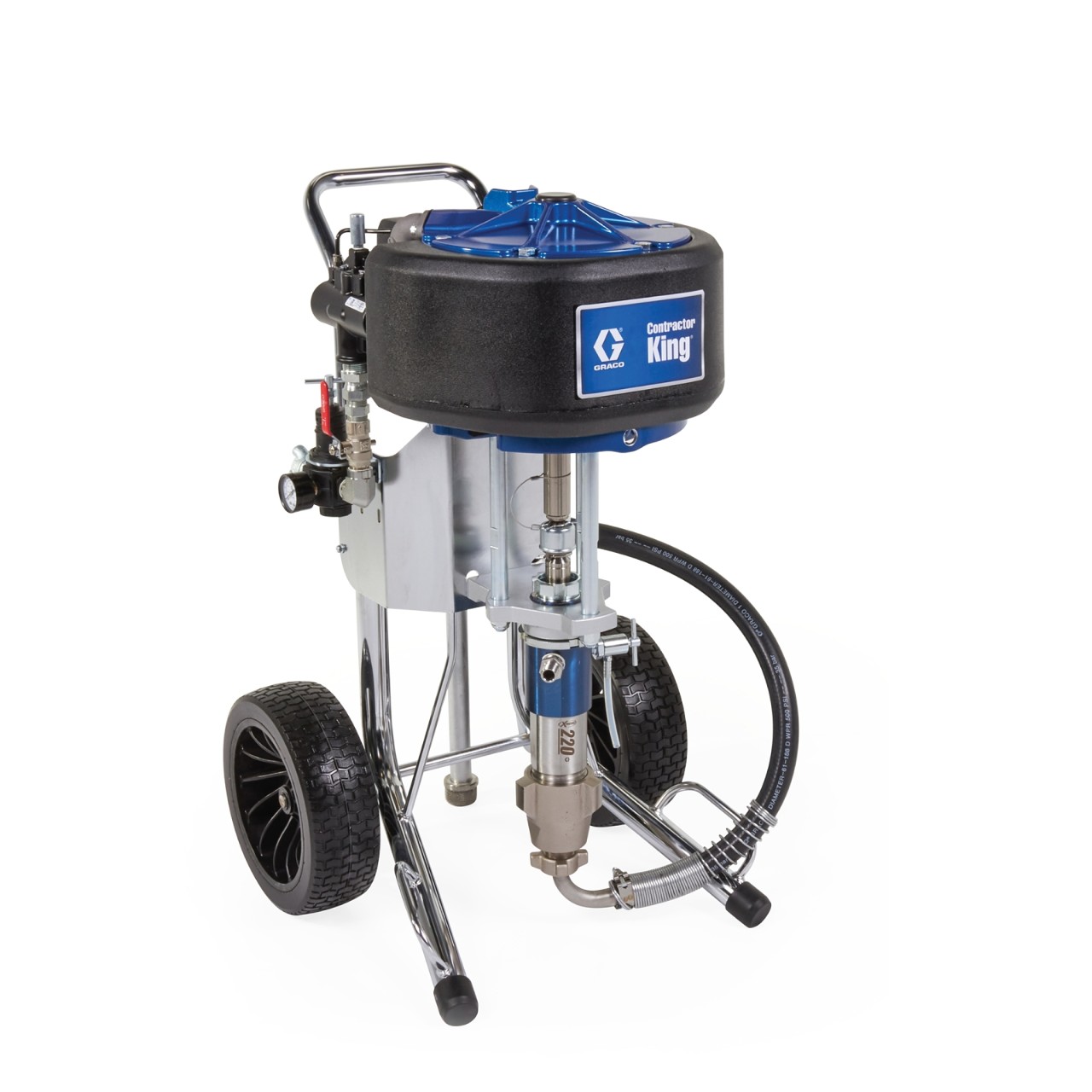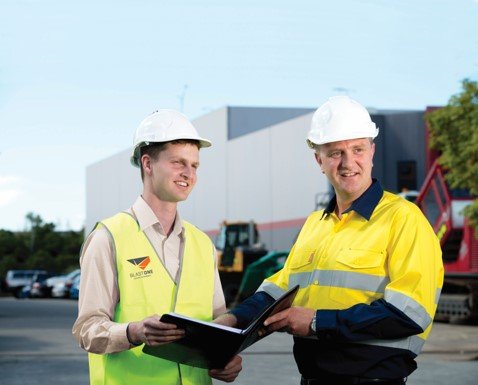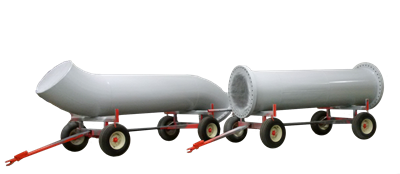
BLAST ROOM MATERIAL HANDLING OPTIONS
It is important to carefully select the correct layout of your new facility. What phases will your material need to pass through from the time it reaches the blast and painting part of your facility, until it is coated and ready to leave. Often adding in some additional storage and staging space into your plans can make a world of difference to the flow of your finishing facility.
After you have planned out your space with our facility design team, you will need to make a decision on what type of material handling system you will use in the blast and paint area. You will need to calculate what your largest part dimensions and weight is for 90% of your work, don’t build a system to handle the once a year project.
Floor Mounted Rails
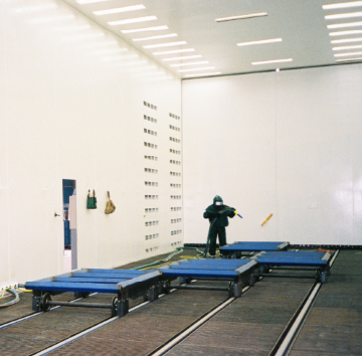
Floor Mounted Rails are the most common material handling solution for Steel Fabricators who are blasting and painting structural steel. The blast and paint rooms would be placed inline, where the carts can proceed directly from the blast into the paint area, maintaining a good flow throughout the whole process. Thoughtful design of the carts enables you to support a large variety of components, up to 15 ton per trolley. The unique design sheds all abrasive, making for minimal abrasive carry-out and the moving parts are protected from the harsh blasting environment.
Overhead Crane
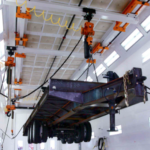
Most Steel Fabrication facilities utilize an overhead crane in the material handling of large pieces of structural steel throughout their plant and between machines. To maintain the same flow in the blast and paint area, it is recommended to have a dedicated crane, or a crane available that isn’t in high demand to ensure high productivity is maintained. Some booths will have a crane built directly into the structure of the blast booth, or have an opening in the roof which the crane supports can pass through.
Work Carts and Wagons

Work Carts and Wagons are probably the most common material handling solution used in blasting and painting facilities. Work Carts are very flexible in their applications, handling items like Structural steel, parts and pieces, pipe work, spools and any complex item. The work can be loaded directly from a truck when they first deliver the work or from an overhead crane from a production line. The products can stay on the cart through the entire blasting and painting facility and process, meaning you only have to handle the parts once. Typically the work cart will be maneuvered with a forklift.
Forklifts
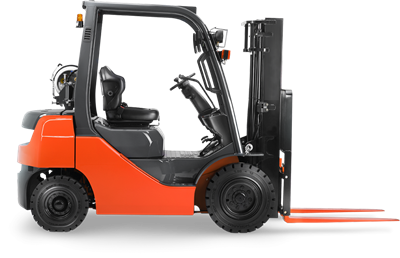
Forklifts are definitely a common material handling solution, typically used for low volume situations. If you are handling very large and heavy pieces of equipment like a pump station or engine block, with low volume, using a forklift could be the right solution for you. If your budget doesn’t allow for any material handling equipment as outlined above, you will find you need to use a stack of pallets to elevate the product or utilize A-frames to mount your products in the blasting and painting area.
Overhead Conveyor
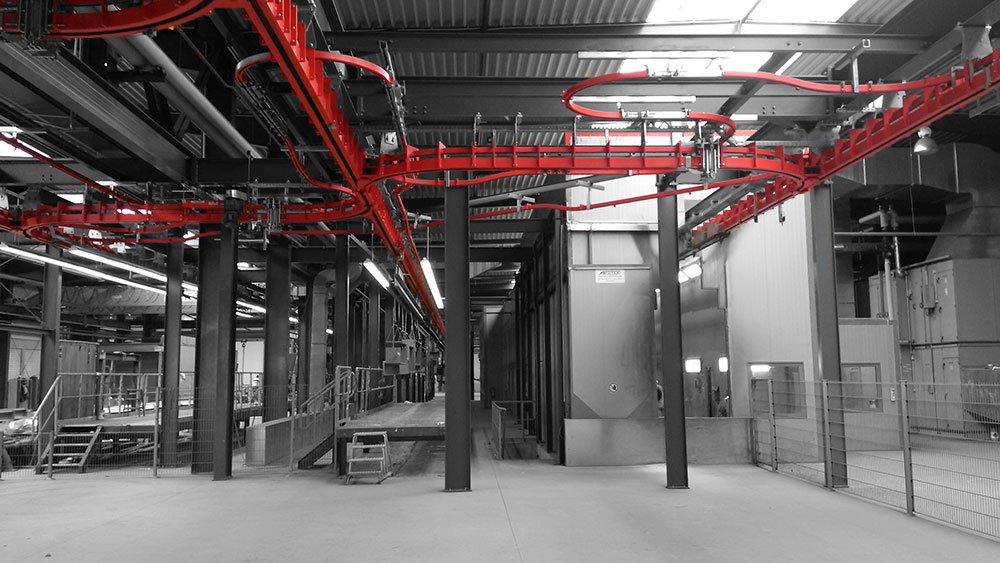
Overhead conveyors can be either power and free or stop-go continuous operation. They are typically used in a finishing facility where you are dealing with smaller components that go through a consistent process. This process would normally include an acid wash, powder coating, and a bake oven. However it is also common to use them for large structural steel and weldments, in high throughput applications.
 My Account
My Account


